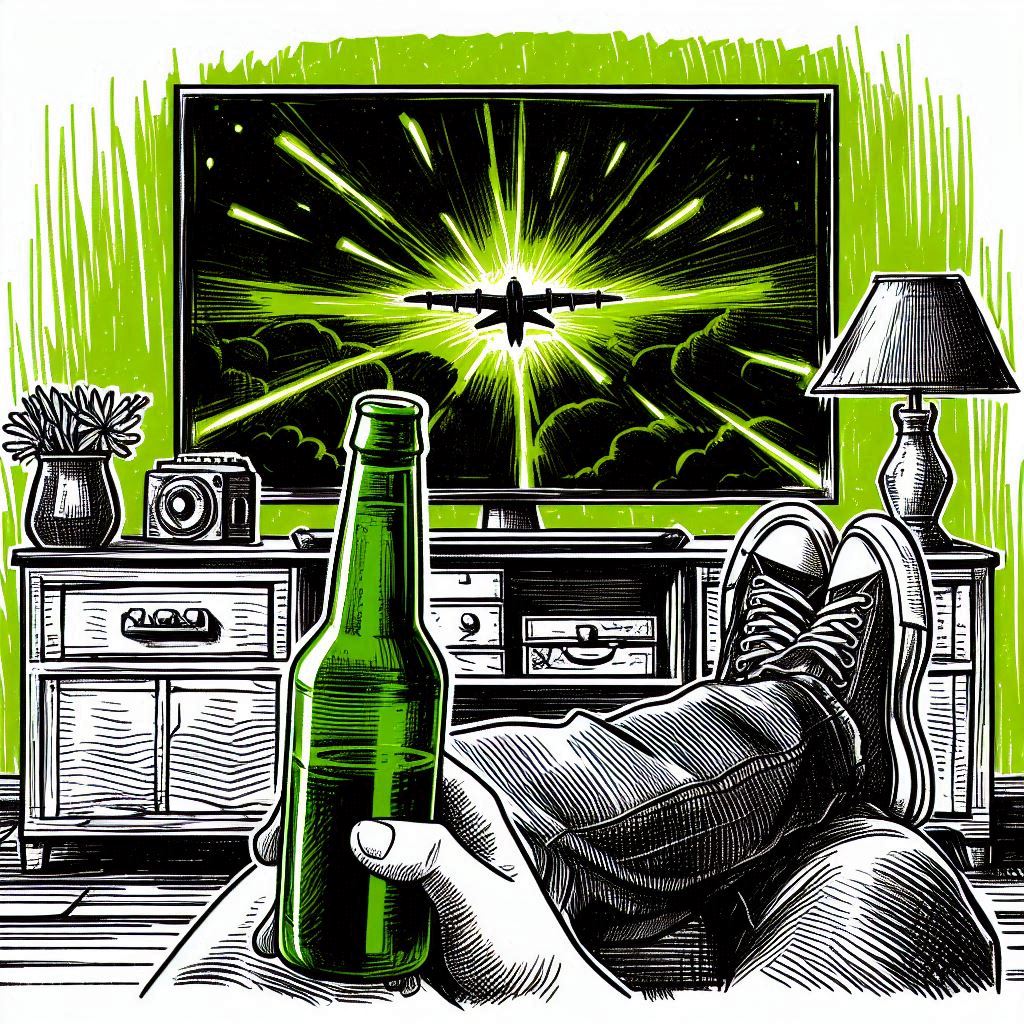Copy shamelessly from the best
If there is one piece of universally understood and uncontroversial advice, this is surely it. There have literally been entire books written to express this one thought, expressed in 3 words – Get Up Early. The number of successful individuals who cite this as a competitive advantage is legion. Jack Dorsey is up & about by 5:30, so is Richard Branson. If you think that is too early, Apple CEO Tim Cook apparently sets his alarm for 3:45 AM & Sergio Marchionne, of Fiat Chrysler at 3:30 AM. The list is much much longer than this – 2/3rds of CEOs on the Inc. 5000 list report being up before 6AM. 90% before 7AM, a third are up before 5AM… …you get the idea.
This is too strong a trend to be coincidence.
There are a few reasons why it makes such a big difference. Early risers have already been awake for hours, are already watchful and alert, often they will have checked their emails, and will be up to speed on any issues, 2, 3, or 4 hours before the office lights are switched on. This means, even if they are not directly working (many use the dawn hours to read or to do moderate cardio rather than work) their brains are nonetheless turning over thoughts for the day & mentally prepared.

They also have time to implement all the aspirational practices we well-intentioned mortals would love to try & don’t quite manage. TED talks & articles in Business Insider or Inc.com extol daily yoga, journaling, and plotting out long & medium-term goals. This is all great, it sounds lovely. But when?

If you are waking up when your kids wake up then your morning can actually be quite a fraught period, cooking breakfast, locating gym kit, plaiting hair, ironing uniform…. Are you waking up to an hour of chaos, & then embracing commute-work-commute for the next 10 or 11 hours, then trying to spend quality time with the kids, bathe them, put them to bed & have dinner? It all feels panicky, rushed, like you are on the back foot throughout.
Ever read a self-help book before? There are obviously countless volumes on the market & it feels like I have read most of them. They often come with exercises at the end of each chapter inviting you to implement the learning, build it into your life. This makes sense. How many of us actually do that, though, when we are reading the book in snatches of time while on a train, sat in a car outside our kids’ school, or eating a sandwich at our desk? Or listening to the audiobook whilst driving? You need to commit to these texts if you are going to get the most out of them, otherwise they are just vicarious insights into the lives of other people.
Don’t be surprised if that airport book you bought on personal finance has no measurable effect a year down the line, after you read it straight through in 4 hours while on a plane, then put it on the shelf when you got home.
Would simply reading Chris Hoy’s training regime improve your cycling? If you do nothing to implement the insights in the self-help books, don’t be surprised if you get results to match.
But again, when??
You guessed it.
The secret of non-time
If you start the day right, you have got time to do all of this stuff. The world is suddenly your oyster, it feels like unlocking a portal into another world. You get time to brush your teeth, soak up in the light of the dawn, drink your coffee, read deep books, think deep thoughts, get some exercise, write and mentally prepare for your day, do your yoga, your meditating, your cardio… you get to make a real breakfast, all the healthy stuff you have been promising to feed your family, that sustains your energy & mood throughout the day.

Larks win the morning, & if you win the morning you win the day. You already have positive momentum on your side by the time you get the kids out of bed. With momentum & plenty of time on your side your mood is good, nothing fazes you. You are clear-headed, arrive at the office feeling good; energised. You don’t crash down in your chair feeling like you have already been through hell & back just trying to brush your teeth, iron a shirt, find your keys, set off late, battle through traffic…
Colleagues notice your positive, upbeat, calm and unhurried energy & are drawn to it, so it has a knock-on effect on your interactions throughout the day. Too much cortisol in the morning can make you anxious, which can pervade your work and this is self-perpetuating. If you are arriving anxious you might be rushing, you develop tunnel vision, you might make mistakes, lose your temper at the office printer, you might not read an email through clearly and misunderstand the message, you might snap at a co-worker, this leads to still more distraction for the rest of the day where you are both testy…

If you really have yourself together this is all elegantly side-stepped. You do your best work when you are at your best, calm, unflappable, delegating work with authority, moving crisply from one successful task to another. It starts with the morning.

Early risers have more hours than the rest of us to get done what they want to. This is already a huge cheat mode, but there is more… these are also the best hours of the day to perform unhurried, deep, meditative work. The phone doesn’t ring, you needn’t even have your emails open, nobody is expecting a reply. No co-workers are telling you about the weekend, it’s just you and your thoughts. Peak performance expert Steven Kotler calls these early hours ‘non-time’.
“”‘Non-time’ is my term for that vast stretch of emptiness between 4AM (when I start my morning writing session) and 7:30AM (when the rest of the world wakes up). This non-time is a pitch blackness that belongs to no one but me,” he writes. “The day’s pressing concerns have yet to press, so there’s time for that ultimate luxury: patience. If a sentence takes two hours to get right, who cares?”.
The neuroscience, he explains, is clear.
“Creativity needs this non-time…. Deadlines can often be stressors. Pressure forces the brain to focus on the details, activating the left hemisphere and blocking out that bigger picture. Worse, when pressed, we’re often stressed. We’re unhappy about the hurry, which sours our mood and further tightens our focus.
Steven Kotler
Unless you have a head office in Singapore or a 6-month old infant there are literally no interruptions before 6AM. Your brain is free to wonder & to wander in productive directions. You need uninterrupted unoccupied time to get your best work done, to get into deep work.
Leveraging the best hours
Hang on, though… the morning hours are a straight swap for the evening, surely? You still need to sleep 8 hours to have your head screwed on right, so the net gain is zero?
In theory, yes, but in practice, no.
It boils down to what you do with your waking hours.
Early risers are probably not hammering Netflix, DVD boxed sets or drinking wine at that time of day. If you are up early then you tend to be in bed early, so your waking hours are 4AM- 9PM. Your time just naturally gravitates onto more valuable and rewarding tasks than if you are awake 8:30AM-1:30 AM. If you are up late then it is possible that you were busy working on your business plan, sure, some people like to write their masterpieces late at night, but for most of us it was more likely that we sat up for two more episodes of ‘Stranger Things’ than we intended to. Switching your waking hours to the morning has an almost inevitable benefit on the productivity of those hours. Straightaway you are more focussed before the working day than you are after it, you are not drinking beer, you are normally alone, and you are not already drained from the mental exertions of the working day. It is 3-4 hours at your best, rather than 3-4 hours when you are tired and should probably just go to bed for all the good work you are going to get done.
If your waking hours are 4 until 9 then you are also not watching much television or drinking much alcohol in the evening. Both degrade the quality of your sleep, so you need less time in bed. Overall, then, there is some net gain in waking hours, you get 7-8 hours of deep restful sleep & wake up renewed instead of 9 hours of slumbering, to wake up groggy and very slightly hungover. Your sleep is not disturbed as it would be if you are drinking, waking up in the night to move yourself from the sofa to the bed, or making bathroom trips.

“So what about circadian clocks – some of us are night owls, and some are larks. Aren’t we destined to live this out?”
There is certainly a genetic element to the night owl vs. lark story, and in general, yes, you want to allow your natural circadian clock to flourish, but let’s also be clear, regardless of when you feel like sleeping, in the corporate world you need to be upright, alert, and presentable during office hours, there is actually very little flexibility on this point. Since modern workplaces normally dictate that we all have to fit, more or less, in a 9-5, there are very few effective peak performers who get out of bed after their colleagues. Perceptions matter and our culture nods approvingly at the early colleague who turns the lights on. It doesn’t even matter what work they are doing for that hour, we instinctively admire them & perceive them as go-getters, even subconsciously. It is accepted as a sign of commitment & it’s a rare employer that truly looks past the number of hours you are putting in and can focus purely on the quality of our output.
Artists can work when they want, Some writers do find the middle of the night their best time, Marcel Proust & Mark Twain among them, but this is seldom compatible with keeping your office hours.

Regardless of how brilliant you are, if you are out of sync. with the rest of the business then you are hamstrung. In the corporate world you just do not turn the heads of colleagues & superiors with 9AM starts.
Folk wisdom vindicated
“Early to bed & early to rise… “The early bird gets the worm…” all of the folk wisdom tends to favour the larks. In effect, it does not matter whether or not it is fair, it is still the reality, and we must respect that.
It is also based on some fundamental truths, not mere prejudice – early risers live longer, are more successful, suffer fewer mental health problems, and achieve higher scholastic grades as well. It is clear measurable effect.
Scientific studies
The Harvard biologist Christoph Randler did some research on this and concluded that early birds are generally more proactive, and this results in higher levels of productivity.
The research does not ALL favour larks it is true, there are studies that find night owls are often smarter & more creative, but it seldom translates into success in the real world, where academic scores suffer by around 8%, and in 2013 University of California researchers on American teens found a measurable increase in emotional problems in adulthood stemming from late bedtimes in adolescence.
Many studies from the US (where high school start times tend to be very early) have linked late sleep with burnout, stress, bullying, and absenteeism, as well as negative physiological effects.
A false dichotomy?
It might be misleading to set the two extremes as oppositional, though. Maybe night owls & larks have more in common than meets the eye? An autobiographical element creeps in here…
For years I was a dyed-in-the-wool night owl & assumed I was predestined to remain so. At school & uni I was incapable of getting up. I adopted a nocturnal lifestyle during the holidays, slept in until 6PM, stayed up until 6-8 AM. At the year-end passing out roasting my joke ‘prize’ was an alarm clock. All my essays & exam cramming began after midnight, and I often slept through all 3 college meal-times. It was a track record of classic night-owl behaviour.

Yet when my kids started waking me up at 3 or 4 AM I simply transitioned to a lark & immediately saw benefits. When they started sleeping later I kept waking up at 4:30. The difference was (as it were) night and day.
Two sides of the same coin?
Based on my experience, the boundless, liminal, 4-7 AM slot beloved of creatives like Steven Kotler & embraced by successful CEOs & writers as well – silent, peaceful, alone, unhurried… sounds a lot like the 10PM-2AM slot during which Proust (and I) used to work. It may be that going to bed super late and getting out of bed super early are not so very different. Superficially they sound like polar opposites but the clock is round, not polar – On a circular clock the further you get from one extreme… the closer you also get to it.
Uber lark & uber owl timekeeping might be two sides of the same coin, or two tips of the same horse-shoe, certainly not opposites. Early risers like Tim Cook might actually be night owls temperamentally, but work best with the solitude slot positioned from 3:30 onwards rather than 10:30 onwards. It looks a lot like the same thing, just displaced. The phenomenon of VERY early rising (like pre-5 AM) might be the night owl’s solution to the problem you encounter when you enter the world of work, that you need all your sleep, and that you need to be on the ball early in the working day as well – where else do you fit in your creative hours?
So… how does one do this, practically?
- Obviously a good waking-up results from a good bedtime – You can’t just curtail your sleep so to rise at 4 or 5 means regularly being asleep at 9, or close to it. Aim for 7 to 8½ hours.
- Start switching off early – Around 6PM. Reduce evening screen time, dine earlier in the evening so your second wind from the evening meal falls before 8PM.
- Make your bedroom as dark as possible, and lower the lights during evenings – both in terms of brightness & position. The dimmer the light around you during the hours before bed the easier you’ll drift off. Try lamps, candles, & dimmer switches. The angle the light hits your eyes also signals the time of day (directly overhead signals noon to your brain). For this reason night lights at ankle level for hallways are perfect. Once more, lamps beat overhead lights here, as they are horizontal to the plane of the eye, like sundown, and are less disruptive to sleep.
- If you are a caffeine fan, set a coffee up the night before – Pre-fill the coffee pot & set a timer if your machine has one. There is a school of thought that caffeine should be avoided for the first few hours to optimise your sleep, but while establishing a new routine anything you need to embed the 5AM starts is on the table.
- Install an alarm clock in your kitchen, a cheap but noisy plug-in radio alarm clock for about 10 quid is fine, your phone will have an alarm as well but it is a bit too portable, and you’ll be tempted to snuggle back under the covers with it. Get yourself upright, in a brightly-lit room with coffee in it to give yourself the best chance of remaining awake.
- Lure yourself with a treat – a biscuit or enticing new coffee first thing upon waking will encourage you to get up rather than roll over & fall back to sleep.
- After a month or two you won’t need all of these reinforcements, you will be habituated and your body clock will start waking you without an alarm, and you should be enjoying your window of solitude, too. So you’ll relish getting out of bed (…eventually)
Freeing up time
Sleep is key to a life well-lived. If you are not getting enough sleep there’s little point in pursuing any of the other success strategies to maximise your brain health & improve your output. You would not paint go-faster stripes & fit a spoiler on a car with a faulty engine to make it quicker, you’d fix the engine before looking elsewhere. First things first, commit to an 8 hour block that fits your schedule, but don’t be hung up on the idea that you are a night owl or a lark, you can make the switch, and the potential benefits really are life-changing.

